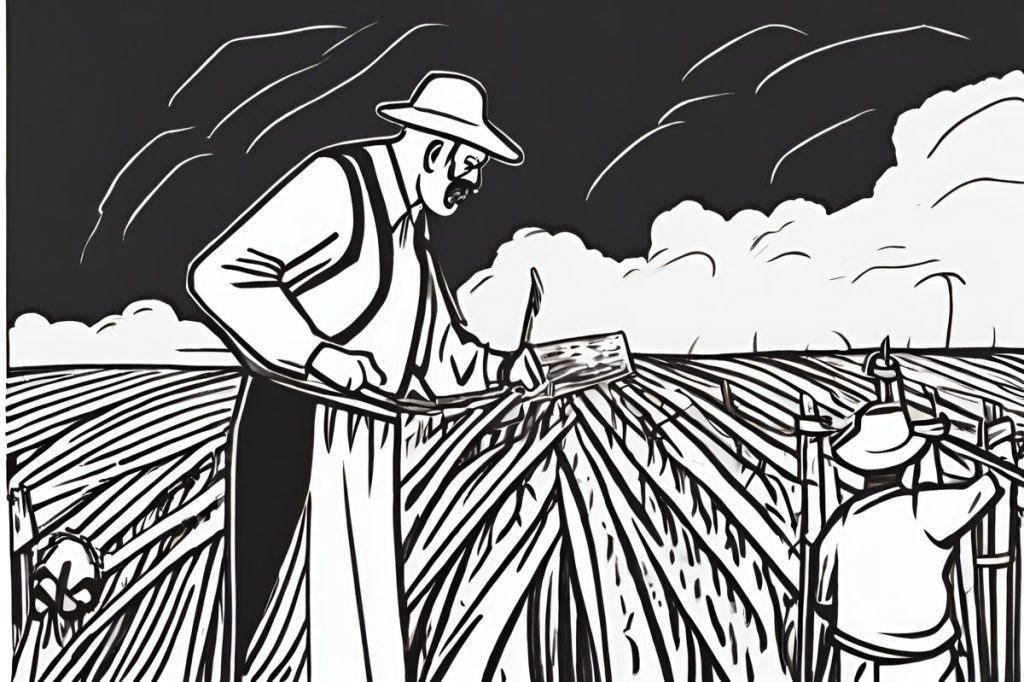The Agriculture Minister Maria Panayiotou is embroiled in controversy as opposition members criticize her refusal to compensate farmers using non-standard compost, despite the ministry approving the seller. The clash highlights the need for clearer regulations and fair treatment of local agriculturists in navigating legal boundaries and supporting their livelihoods.
What is the controversy surrounding the denial of compensation to farmers by Agriculture Minister Maria Panayiotou?
Agriculture Minister Maria Panayiotou is under fire for denying compensation to farmers who used non-standard compost, citing legal boundaries. Opposition claims the affected farmers were misled, as the seller was approved by the ministry, sparking debate on the need for clearer regulations and fairer treatment of local agriculturists.
The Dilemma of Compensation
Opposition members in parliament expressed their discontent with Agriculture Minister Maria Panayiotou’s decision to deny compensation to a group of farmers. These farmers had utilized waste material, which differed from standard compost, as fertiliser, sparking a heated debate. Approximately 15 farmers found themselves at the center of this controversy, with their predicament highlighting the need for clear guidelines and support for local agriculturists.
The legal framework currently dictates that only those who used specified types of compost are eligible for compensation. This stance is supported by a legal opinion from the attorney-general, which emphasizes adherence to the established law. The implications of this decision are broad, affecting not just the farmers’ livelihood but also the broader agricultural community’s trust in regulatory practices.
The Clash with Legal Boundaries
Maria Panayiotou has been unyielding in her stance, citing the importance of not operating outside the legal boundaries. She insists that despite the pressure from opposition MPs, her hands are tied by the law. This legal opinion clearly demarcates the eligibility criteria for compensation, highlighting the necessity of using organic matter that meets EU standards for subsidies.
However, the crux of the matter lies in the fact that the company from which the farmers purchased the off-specification compost was listed as an approved seller by the agricultural ministry itself. This contradiction has led to accusations from the Akel party that the farmers are being unfairly victimised. There are calls for a “political decision” to untangle this complex situation and find a just resolution for the affected farmers.
The Need for a Solution
The discord between MPs and the agriculture minister intensified as alternative solutions were sought. The suggestion to find a different method to secure €250,000 in compensation reflects the urgency of the matter. Charalambos Pazaros, a member of the Disy party, joined the chorus of voices urging the minister to navigate a way out of this impasse.
Charalambos Theopemptou of The Greens pointed out a systemic issue, noting the lack of a definitive framework for compost manufacturing. This loophole has allowed for the current predicament, where the definition of compost and the regulatory standards for its production have become the center of controversy.
Minister’s Acknowledgement and Defense
In the face of mounting criticism, Minister Panayiotou acknowledged the error in listing the companies in question as approved sellers on the ministry’s website. However, she maintained her position against breaking the law. The minister’s firm response underlines the tension between adhering to legal statutes and addressing the grievances of the farming community.
The disagreement throws light on the challenges faced by policymakers in balancing the rigidity of law with the dynamic needs of the populace. While the minister dismissed the notion of the state’s indifference towards the agricultural sector, the need for clear and fair regulations remains evident. The situation serves as a reminder of the delicate interplay between law, governance, and the welfare of the citizens.
What is the controversy surrounding the denial of compensation to farmers by Agriculture Minister Maria Panayiotou?
Agriculture Minister Maria Panayiotou is under fire for denying compensation to farmers who used non-standard compost, citing legal boundaries. Opposition claims the affected farmers were misled, as the seller was approved by the ministry, sparking debate on the need for clearer regulations and fairer treatment of local agriculturists.
What is the legal framework that dictates the eligibility for compensation in this situation?
The current legal framework specifies that only farmers who used specified types of compost that meet EU standards are eligible for compensation. Despite the seller being approved by the ministry, the attorney-general’s legal opinion emphasizes the importance of adhering strictly to established law when determining eligibility for subsidies.
How has the clash between the agriculture minister and opposition MPs escalated in this situation?
The clash between Agriculture Minister Maria Panayiotou and opposition MPs has intensified as the issue of compensation for farmers using non-standard compost remains unresolved. While the minister insists on following legal boundaries, opposition members argue that the affected farmers were misled, calling for a political decision to address the situation fairly.
What systemic issues have been highlighted by this controversy regarding compost manufacturing and regulatory standards?
The controversy surrounding the denial of compensation to farmers has shed light on systemic issues in compost manufacturing and regulatory standards. The lack of a definitive framework for compost production has created confusion, leading to debates over what constitutes compost and the standards that should be met. This highlights the need for clearer regulations and support for local agriculturists navigating legal boundaries in their livelihoods.

